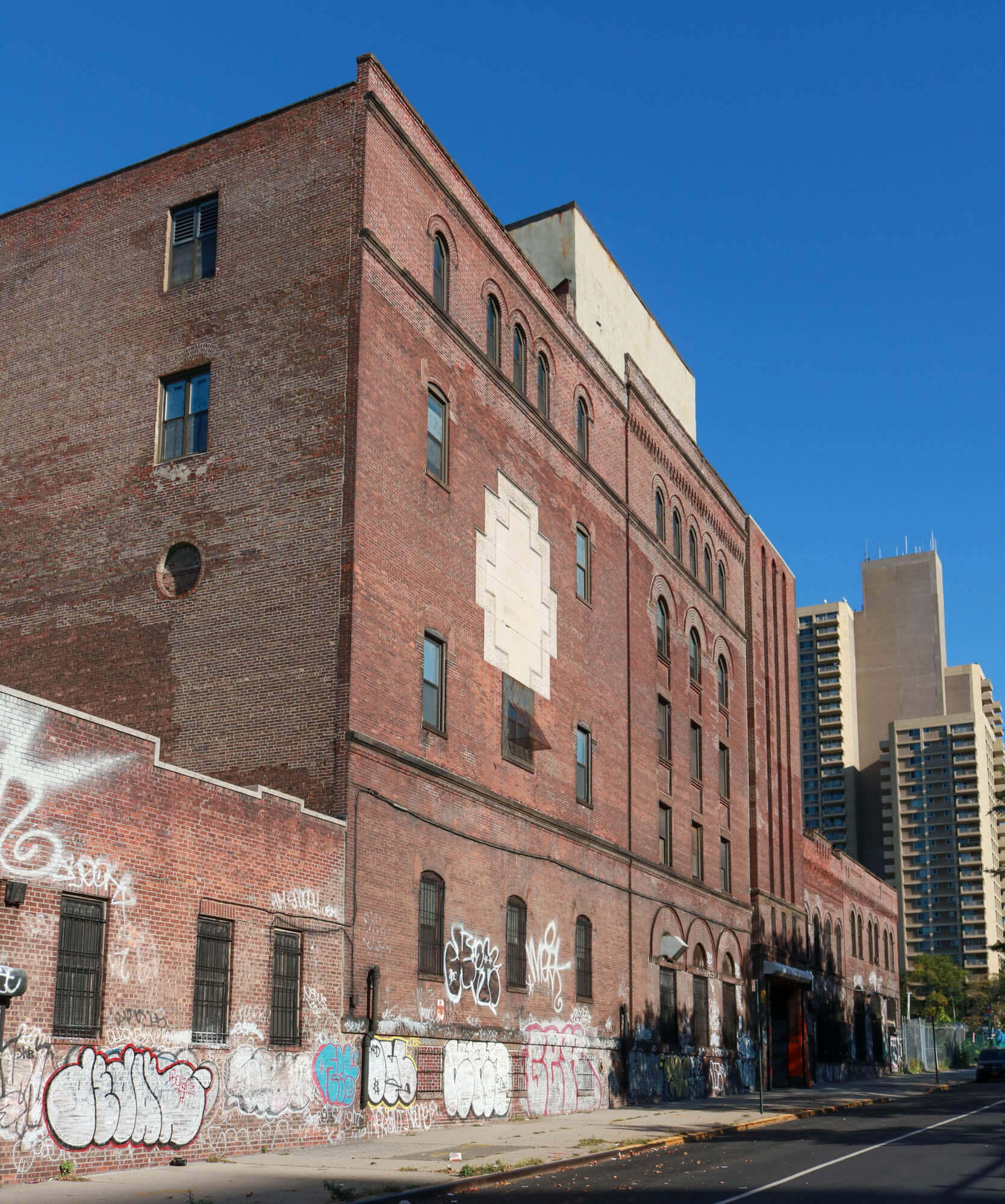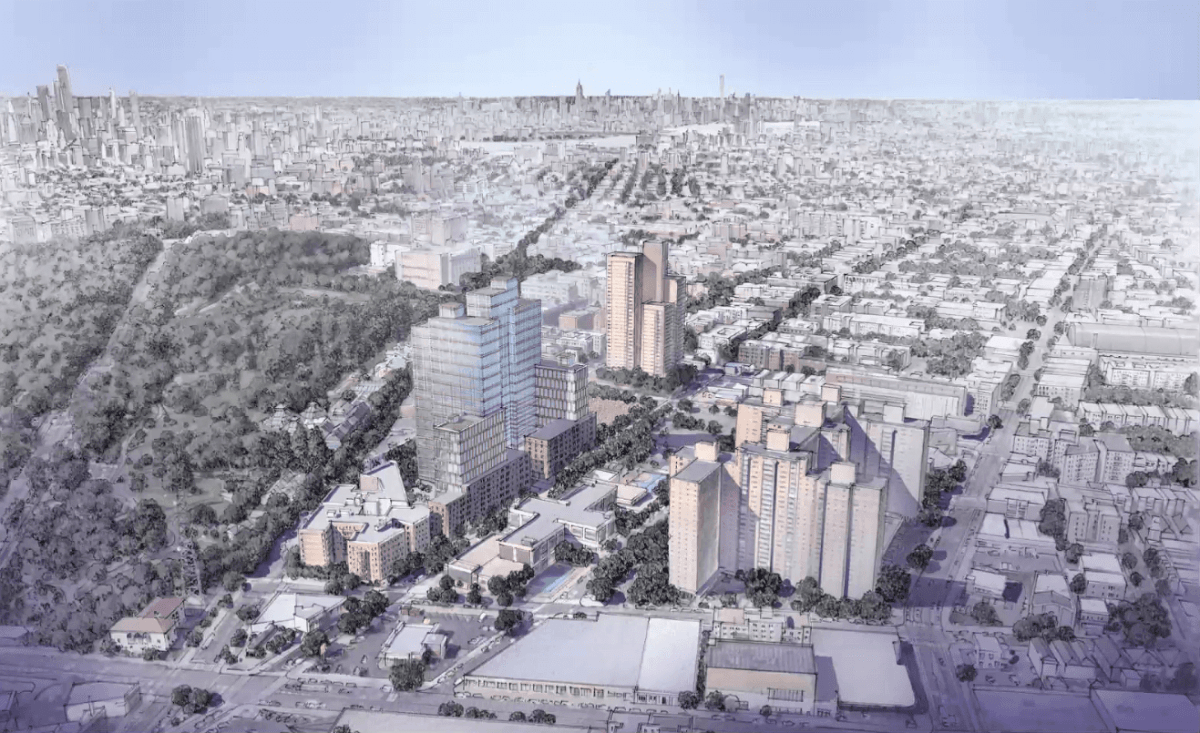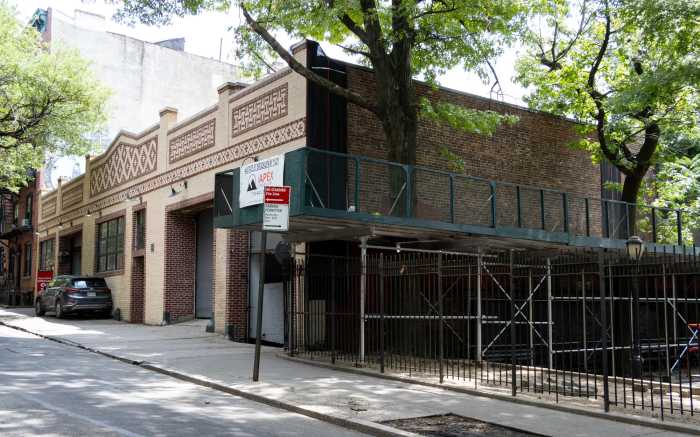Community Board 9 in Crown Heights voted overwhelmingly on Wednesday to disapprove a controversial development near the Brooklyn Botanic Garden, citing the potential harm the building would cause to the garden’s plant life.
The developer behind the project, Continuum Company, is seeking a rezoning at 960 Franklin Ave. that would allow for two towers over 30 stories high just 150 feet from the flower emporium, as well as a number of other smaller towers.
If approved, the buildings would “block hours of sunlight to the Garden’s 23 conservatories, greenhouses, and nurseries, which grow plants for the entire 52-acre Garden site and its community programs,” according to the garden.
Citing the potential negative impact, the civic panel voted 23-to-2 to cast its advisory vote against approving the rezoning. Now, Borough President Eric Adams will weigh in on June 29, before binding votes by the City Planning Commission, the City Council, and the mayor.
If approved, the project would bring 1,578 apartments, including around 789 earmarked as “affordable” based on residents’ income.
Brooklyn Botanic Garden President Adrian Benepe spoke at a June 21 public hearing of the community board subcommittee, presenting the pannel with 55,000 signatures on a petition in opposition to the project.
“The Garden stands with tens of thousands of community residents and the many elected officials and City Planning Commission members who have publicly opposed the project because of the existential damage that it will do to the Garden and surrounding neighborhood,” Benepe said. “Unfortunately, the developers have continued to pit affordable housing aims and union jobs against preservation of one of the city’s most cherished and historic collections of plants, a local college, a children’s playground, and other public spaces.”
The Garden has been vocal in its opposition to the project through its Fight for Sunlight campaign, and its experts have explained in detail the potential damage shadows cast by the buildings could cause.
Shadow studies commissioned by the Garden and other groups have found that the development would also pose significant shadow effects on nearby Jackie Robinson Playground and Medgar Evers College. The existing zoning was put in place in 1991 by the David Dinkins administration specifically to protect the garden, with height limits currently capped at 7 stories.

Community board members cited the blocking of the garden’s sunlight as their chief concern about the project, but also listed a number of other problems — such as the strain on local infrastructure, and the possible acceleration of gentrification due to an influx of pricey market-rate apartments.
Board members also argued that the affordability levels offered in the development were too high for the surrounding low and middle-income area.
“Most of the affordable housing that was presented does not adequately provide for the members of the community currently present,” said Alejandra Caraballo, chair of the board’s Housing Committee.
Caraballo also expressed concerns over the lack of clarity from the developer over whether tenants in so-called affordable apartments would have the same access to amenities as those in market-rate units.
The 34-story version of the project is largely considered dead on arrival as it moves through the land use process, with Mayor Bill de Blasio voicing his opposition to it.
Continuum Company has made it clear, however, that something will be built on that site with-or-without a rezoning. If they are not granted a land use change, they plan on erecting a condo building with over 500 units as of right — all of which will be offered at market rates.
The builders have also proposed a 17-story alternative, which would require a different rezoning, and contain 1,170 units, 292 of which would be offered at below-market rate.
The land use process for the development has been stalled in part due to various lawsuits — including one that came before a judge who ordered the city to hold an in-person hearing on the project. That plan was later scrapped by the community board who cited concerns about the low vaccination rate in the community.
























